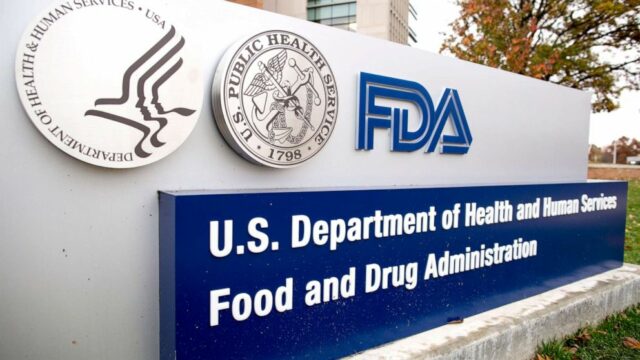
Saniona’s CMO on the FDA Orphan Drug Designation for Tesomet in HO
Last week, Saniona announced that the U.S. Food and Drug Administration has granted orphan drug designation to Tesomet for the treatment of hypothalamic obesity (HO), making Saniona the first company to achieve this milestone. BioStock reached out to Rudolf Baumgartner, MD, Chief Medical Officer and Head of Clinical Development at Saniona, to learn more about the significance of the FDA’s decision, as well as the plans to initiate phase IIb studies in the second half of 2021 for both HO and Prader-Willi syndrome (PWS) – an indication the company obtained orphan drug status for from the FDA earlier this year.
Saniona’s primary drug candidate Tesomet – a fixed dose combination of the triple monoamine reuptake inhibitortesofensine and beta blocker metoprolol – is being developed for the treatment of the rare diseases hypothalamicobesity (HO) and Prader-Willi syndrome (PWS). Assuming a positive outcome in the phase IIb trials, phase III trials will be conducted before an application for approval of a new drug can be submitted in the US and in Europe.
Strengthened case in both HO and PWS
HO is characterised by a severe and debilitating obesity that is often accompanied by depression, impulse control disorders, as well as an increased risk of cardiovascular disease and type 2 diabetes.
Today there are no approved treatments for HO which leaves the patients in a difficult position where they are referred to ineffective alternatives for weight loss such as surgery, medication and lifestyle counselling.
In early March this year, Saniona received orphan drug designation for Tesomet for the treatment of PWS. Last week, Saniona was able to secure its second orphan drug designation, this time regarding Tesomet for the treatment of HO. These two important announcements come with certain benefits to Saniona, including important tax and potential market exclusivity benefits to Saniona and add value to these clinical programs, as evidenced by the stock reaction and positive analyst reports following each.
Saniona’s CMO comments
BioStock reached out to Rudolf Baumgartner, MD, Chief Medical Officer and Head of Clinical Development at Saniona, who provides a more extensive picture of the FDA’s decision.

Rudolf, can you briefly talk about HO and why you think no other company has managed to obtain orphan drug status in this indication before?
– HO is a rare disorder caused by injury to a region of the brain known as the hypothalamus. The condition is characterized by rapid, excessive weight gain that persists despite restricted food intake, extreme hunger and several other complications that may include memory impairment, attention deficit, lethargy and other symptoms. HO is rare – it is estimated to impact between 10,000 and 25,000 in the U.S. and between 16,000 and 40,000 in Europe. There has not been a lot of pharmaceutical company research or drug development done for HO, likely because it is rare and it is a complex disorder. This has put Saniona in the position of being a pioneer of drug development in HO and being the first company granted orphan drug designation for this condition.
What does the orphan drug classification mean for Saniona going forward?
– Orphan drug designation qualifies Saniona for certain development benefits, including tax credits, elimination of certain FDA license application fees, and seven years of market exclusivity in the U.S. following approval. Additionally, it allows Saniona to work with and get additional advice and support from the FDA’s reviewing division during our clinical development process. Having this designation for both of our Tesomet programs in PWS and HO is a significant benefit and will allow us to advance Tesomet as quickly and efficiently as possible.
Can you talk about the process that got Saniona to this stage in HO?
– The process for obtaining an orphan drug designation at the FDA is well-established, but it is never a guarantee, and it requires sufficient scientific evidence on both the product and the indication. This is the process that Saniona followed both in PWS and HO. In PWS, where several other biotechs have applied for and received this designation, approval came quickly, back in March. In HO, because the FDA had never granted an orphan drug designation for HO before, the process required a bit more time as the Office of Orphan Drug Products had additional questions on this condition. We were glad to have the opportunity to provide them with the needed information about HO, and were pleased with how quickly they responded and granted this designation in HO.
What does the announcement mean to the HO advocacy community and caregivers?
– We were fortunate to have Amy Wood, Executive Director of the Raymond A. Wood Foundation and parent of a child living with hypothalamic obesity, provide her perspective in our press release. She said: “The recognition of the first orphan drug designation in hypothalamic obesity is a critical milestone for the HO community. … We are incredibly grateful that both the FDA and Saniona recognize the seriousness of this disorder, and we hope this orphan drug designation is the first step towards having an innovative treatment.”
Can you talk about the work that remains before clinical studies can be initiated in the second part of 2021?
– There is a lot of preparation that must be completed to initiate a clinical trial. We have taken many preparatory steps including selecting the clinical research organization (CRO), the manufacturer, and many clinical trial sites for the PWS and HO clinical trials. We are working to complete the FDA’s previous requests for information regarding our manufacturing of Tesomet capsules, and we are on track to start both the PWS and HO phase 2b trials in the second half of this year as targeted.
The content of BioStock’s news and analyses is independent but the work of BioStock is to a certain degree financed by life science companies. The above article concerns a company from which BioStock has received financing.

